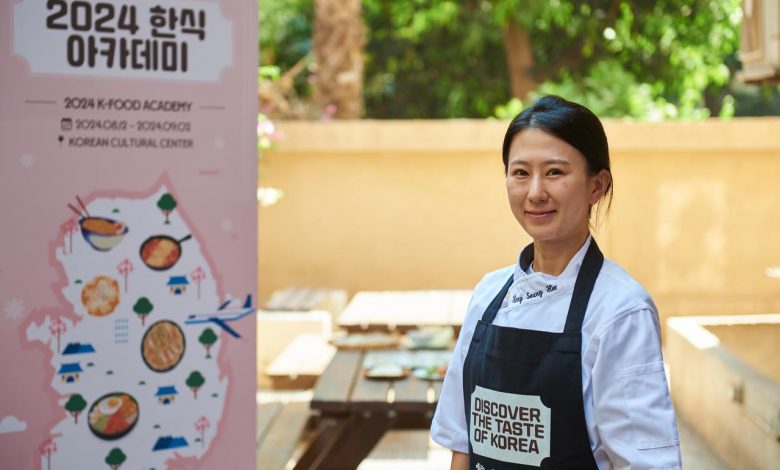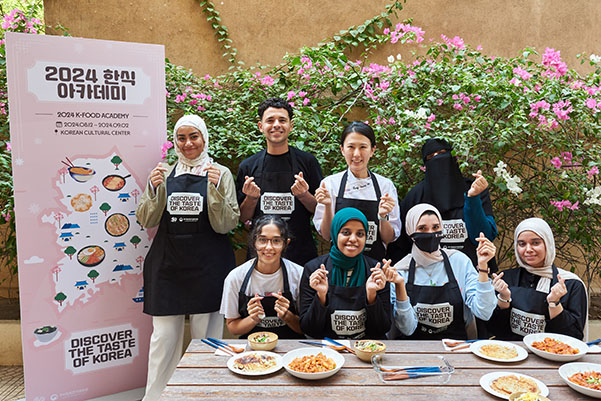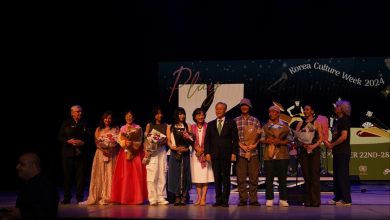
By: Doaa Mohamed
The Korean Cultural Center has inaugurated the Korean Food Academy, a three-week course designed to provide an opportunity to explore the rich culture of Korean cuisine, known as “Hansik.”
Out of 1,200 applicants, 120 were selected to participate in the course, which began on August 12 and will continue until September 2. The course is led by Korean chef Hong Seung Hee, an expert in nutrition and a quality control officer for several food companies.
Participants will learn extensively about Korean food culture and traditional dishes from various Korean regions, such as “Jeon Tteok,” a vegetable pancake with red pepper paste, and “Tteokgalbi,” grilled short ribs. They will also have the chance to taste the dishes being prepared. At the same time, participants will enjoy a hands-on cooking experience, enabling them to easily recreate their favorite Korean dishes at home using local ingredients.

The Korean Food Academy, an annual event organized by the center, aims to spread Korea’s unique culinary culture, thereby fostering cultural exchange between the two countries. Korean cuisine has gained significant popularity among various global cuisines, partly due to the global reach of Korean dramas and K-pop.
Oh Sung Ho, Director of the Korean Cultural Center, stated that Koreans place great importance on sharing food, a tradition deeply rooted in the culture of side dishes that are served with meals and shared by everyone at the table. The most famous of these is Kimchi, a traditional Korean pickled dish.
In this spirit, the Korean Cultural Center, through this academy, seeks to share Korean food culture and the customs and traditions associated with it with the Egyptian audience.
The Essence of Korean Cuisine
Korean cuisine, known for its balance of flavors, healthy ingredients, and vibrant presentation, has become a global favorite. Key ingredients such as soy sauce, garlic, sesame oil, and gochujang (red chili paste) are staples in many dishes, contributing to their unique taste. Traditional meals often include rice, soup, kimchi, and a variety of side dishes, emphasizing communal eating and the importance of harmony in flavors.

The Importance of Food Culture Worldwide
Food is more than just sustenance; it’s a vital part of cultural identity and a means of bringing people together. Across the globe, food culture plays a significant role in social gatherings, traditions, and the preservation of heritage. Whether through traditional recipes passed down through generations or modern culinary innovations, food remains a powerful connector between people and cultures.
The Connection Between Korean and Egyptian Cuisine
Though geographically distant, Korean and Egyptian cuisines share a love for bold flavors and communal dining. Both cultures emphasize the importance of sharing meals with family and friends, and each has its own set of traditional dishes that are deeply rooted in history and culture. This shared value of food as a means of bringing people together makes the Korean Food Academy a unique platform for cultural exchange between Korea and Egypt.



